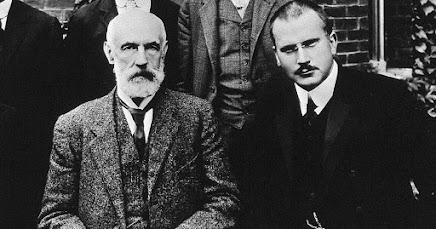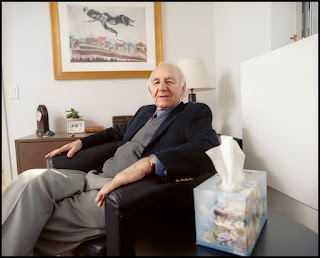Research Blog #9: Argument & Counterargument

Throughout my paper, I explain Sigmund Freud’s interpretation of the unconscious mind and how it relates to déjà vu and dreams. I believe that Freud’s theories are the most accurate interpretations. Freud believes that the unconscious mind holds repressed thoughts, traumatic memories, and overall unpleasant feelings such as anxiety, pain, and conflict. In relation to dreams, he believes that our dreams are able to access the unconscious and can explain a lot about us.
As a counterargument, I wanted to dive into Carl Jung’s theories of the unconscious and dreams. Freud and Jung were good friends/colleagues so a lot of what Freud believed is also something that Jung believed, but there were still some disagreements between the two. Jung believes that the personal unconscious includes recalled and suppressed memories, and the collective unconscious holds our experiences or knowledge that we have had since birth. While I don’t exactly agree with his view on the unconscious, I do agree with his interpretation of dreams. Jung believed that dreams can also tell a lot about a person, but unlike Freud, he did not believe that what occurs in dreams is sexual in nature. This is an idea that is prominent throughout the majority of Freud’s work and is something that I don’t agree with so I don’t incorporate it into my paper. Jung focused more on symbolic imagery in dreams and the interpretation of a dream can vary between people. At the beginning of the semester, I remember we had to read a piece by Jung and it also explained how symbolic imagery was a big concept for his theories, and it really stuck with me. Jung also feels that dreams could possibly anticipate future events which I believe can be true (Blundell).
As much as I believe that déjà vu mainly deals with the unconscious and other parts of our lives (like if a person has anxiety or not), Jung’s theory of synchronicity and interpretation of dreams is honestly a great theory to explain why déjà vu occurs. Jung explained an encounter he had with a woman patient of his who was about to tell the doctor about a previous dream she had. In the dream “she was given a golden scarab in form of a piece of jewelry” (Forrer). As she was telling the dream, Jung turns around to a noise at the window which ended up being a beetle “whose gold-green colour closely resembled that of a golden scarab” (Forrer). He then handed the beetle to the patient saying it was her scarab. Jung didn’t notice at first, but this incident wasn’t his dream that was recalled in the course of its manifestation, but it was the patient’s dream. If this did happen to him then he would’ve recognized it to be déjà vu. “And if the scarab episode was a déjà vu as I maintain, then that ‘causal bridge between the elements making up a meaningful coincidence or a synchronicity’ is clearly a dream. In other words a synchronistic episode is nothing more mysterious than the manifestation of a dream” (Forrer). In this incident, Jung has helped complete a déjà vu experience for the patient.
Citations
Blundell, Andrea. “Freud vs Jung - Similarities and Differences.” Harley Therapy™ Blog, 20 Feb. 2014, www.harleytherapy.co.uk/counselling/freud-vs-jung-similarities-differences.htm.
Forrer, Kurt. “View of ‘To Test or Not to Test, That Is the Question’ - Is There a Way of Verifying the Validity of the Interpretation of Our Dreams?” International Journal of Dream Research, Oct. 2014, journals.ub.uni-heidelberg.de/index.php/IJoDR/article/view/15033/pdf_80.
Comments
Post a Comment